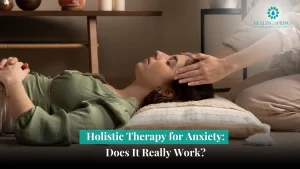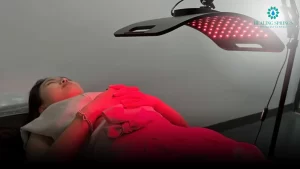As we observe Black History Month, it’s vital to spotlight the mental health challenges within the Black community, especially those unique to Black men. This time of reflection and celebration provides an excellent backdrop to discuss, demystify, and take action on mental health issues that often go unaddressed due to deep-rooted stigmas and societal pressures. In this article, we’ll explore commonly overlooked mental health issues among Black men.

The Unseen Struggles
The mental health of Black men is a complex issue, layered with societal expectations and stereotypes that often mask their true struggles. This invisibility not only exacerbates the challenges they face but also demands immense resilience to navigate the intersectionality of race and gender. Recognizing these struggles is the first step towards meaningful change, providing a foundation for discussions on mental wellness that are long overdue.
Breaking the Chains of Stigma
Stigma is a formidable barrier to seeking mental health support, particularly in the Black community. Studies reveal a startling gap in the utilization of mental health services, with only a fraction of Black men who experience symptoms of anxiety or depression seeking help. This reluctance is often rooted in cultural narratives that equate vulnerability with weakness. Breaking these chains requires a collective effort to normalize mental health conversations and affirm that seeking help is a sign of strength, not weakness.
Understanding the Community Impact
Mental health issues do not only affect individuals; they ripple through families, friendships, and communities. The struggles of Black men can lead to broader societal impacts, affecting community cohesion and overall wellness. Addressing mental health at a community level can foster a supportive environment where individuals feel empowered to seek help, thereby strengthening the community fabric and promoting collective healing.
The Role of Cultural Competence
Cultural competence in mental health care is crucial for effectively addressing the needs of Black men. Understanding the cultural context, including the unique pressures and challenges faced by Black men, can lead to more effective and empathetic support services. Providers must be equipped to navigate the nuances of race, culture, and gender in therapy, creating a safe space where Black men feel understood and supported. Our culturally competent therapists understand and acknowledge the unique mental health issues among Black men and offer specialized Therapy For Men as a non-judgmental environment where they can be vulnerable without fear.
Inviting Transformation
Embracing the journey towards mental wellness requires courage and support. It’s about changing the narrative to view seeking mental health support not as a weakness but as a proactive step towards empowerment. This transformation can lead to improved mental health outcomes, greater resilience, and a more fulfilling life.
As we continue to celebrate Black History Month, let’s commit to bringing mental health out of the shadows and into the open, where it belongs. By fostering open dialogues, challenging outdated stereotypes, and supporting one another in seeking help, we can make strides towards a healthier, more supportive community for Black men and the wider society.




